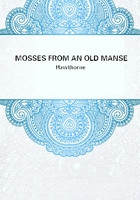
第56章 EGOTISM[1]OR, THE BOSOM SERPENT(5)
Sometimes, in his moments of rage and bitter hatred against the snake and himself, Roderick determined to be the death of him, even at the expense of his own life. Once he attempted it by starvation; but, while the wretched man was on the point of famishing, the monster seemed to feed upon his heart, and to thrive and wax gamesome, as if it were his sweetest and most congenial diet. Then he privily took a dose of active poison, imagining that it would not fail to kill either himself or the devil that possessed him, or both together. Another mistake; for if Roderick had not yet been destroyed by his own poisoned heart nor the snake by gnawing it, they had little to fear from arsenic or corrosive sublimate. Indeed, the venomous pest appeared to operate as an antidote against all other poisons. The physicians tried to suffocate the fiend with tobacco smoke. He breathed it as freely as if it were his native atmosphere. Again, they drugged their patient with opium and drenched him with intoxicating liquors, hoping that the snake might thus be reduced to stupor and perhaps be ejected from the stomach. They succeeded in rendering Roderick insensible; but, placing their hands upon his breast, they were inexpressibly horror stricken to feel the monster wriggling, twining, and darting to and fro within his narrow limits, evidently enlivened by the opium or alcohol, and incited to unusual feats of activity. Thenceforth they gave up all attempts at cure or palliation. The doomed sufferer submitted to his fate, resumed his former loathsome affection for the bosom fiend, and spent whole miserable days before a looking-glass, with his mouth wide open, watching, in hope and horror, to catch a glimpse of the snake's head far down within his throat. It is supposed that he succeeded; for the attendants once heard a frenzied shout, and, rushing into the room, found Roderick lifeless upon the floor.
He was kept but little longer under restraint. After minute investigation, the medical directors of the asylum decided that his mental disease did not amount to insanity, nor would warrant his confinement, especially as its influence upon his spirits was unfavorable, and might produce the evil which it was meant to remedy. His eccentricities were doubtless great; he had habitually violated many of the customs and prejudices of society; but the world was not, without surer ground, entitled to treat him as a madman. On this decision of such competent authority Roderick was released, and had returned to his native city the very day before his encounter with George Herkimer.
As soon as possible after learning these particulars the sculptor, together with a sad and tremulous companion, sought Elliston at his own house. It was a large, sombre edifice of wood, with pilasters and a balcony, and was divided from one of the principal streets by a terrace of three elevations, which was ascended by successive flights of stone steps. Some immense old elms almost concealed the front of the mansion. This spacious and once magnificent family residence was built by a grandee of the race early in the past century, at which epoch, land being of small comparative value, the garden and other grounds had formed quite an extensive domain. Although a portion of the ancestral heritage had been alienated, there was still a shadowy enclosure in the rear of the mansion where a student, or a dreamer, or a man of stricken heart might lie all day upon the grass, amid the solitude of murmuring boughs, and forget that a city had grown up around him.
Into this retirement the sculptor and his companion were ushered by Scipio, the old black servant, whose wrinkled visage grew almost sunny with intelligence and joy as he paid his humble greetings to one of the two visitors.
"Remain in the arbor," whispered the sculptor to the figure that leaned upon his arm. "You will know whether, and when, to make your appearance.""God will teach me," was the reply. "May He support me too!"Roderick was reclining on the margin of a fountain which gushed into the fleckered sunshine with the same clear sparkle and the same voice of airy quietude as when trees of primeval growth flung their shadows cross its bosom. How strange is the life of a fountain!--born at every moment, yet of an age coeval with the rocks, and far surpassing the venerable antiquity of a forest.
"You are come! I have expected you," said Elliston, when he became aware of the sculptor's presence.